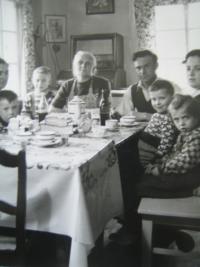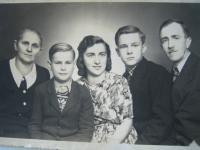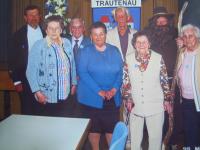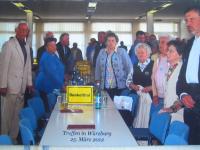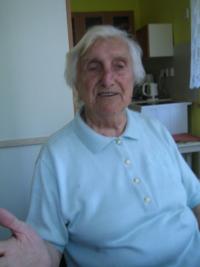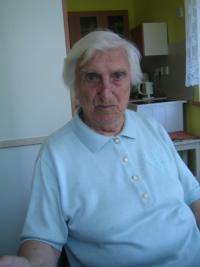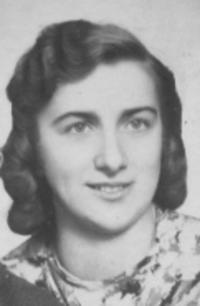Our relatives begrudged us that we were allowed to stay whereas they had to leave to Germany
Rozálie Tupá, née Scholz, was born on 3 March 1925 in the settlement of Albeřice in the Krkonoše Mountains, into a German family. She had two brothers - Rudolf, the elder, and Walter, the younger. At home they always spoke in German, she did not learn Czech until after the war. Her father and later also her older brother worked at Count Černín’s sawmill, her mother was employed at the Texlen factory. The witness attended a German lower and upper primary school in Štýrec. Their tranquil family life was disrupted by the wartime years. Her older brother Rudolf was drafted into the army before Christmas 1944, at seventeen years of age. Her father joined him in March of the following year, but he only spent a few months on the front. For more than a year afterwards he worked as a prisoner of war at a sawmill in Bakov nad Jizerou. Most German boys from the area had been drafted to the front, and only one of Rozálie’s year group returned alive. From 1943 the witness worked as a switchboard operator at the court in Trutnov. A year later she obtained employment at AEG Trutnov, where she remained until 5 May 1945. After the war she was one of the Germans who did not have to leave Czechoslovakia - this was because her mother held an important position at Texlen, and also the local workforce was severely lacking. However, their house and all their belongings were confiscated, and they were stripped of their civil rights. Rozálie Tupá started working at a paper mill, where she remained until her retirement. She married in 1950.

